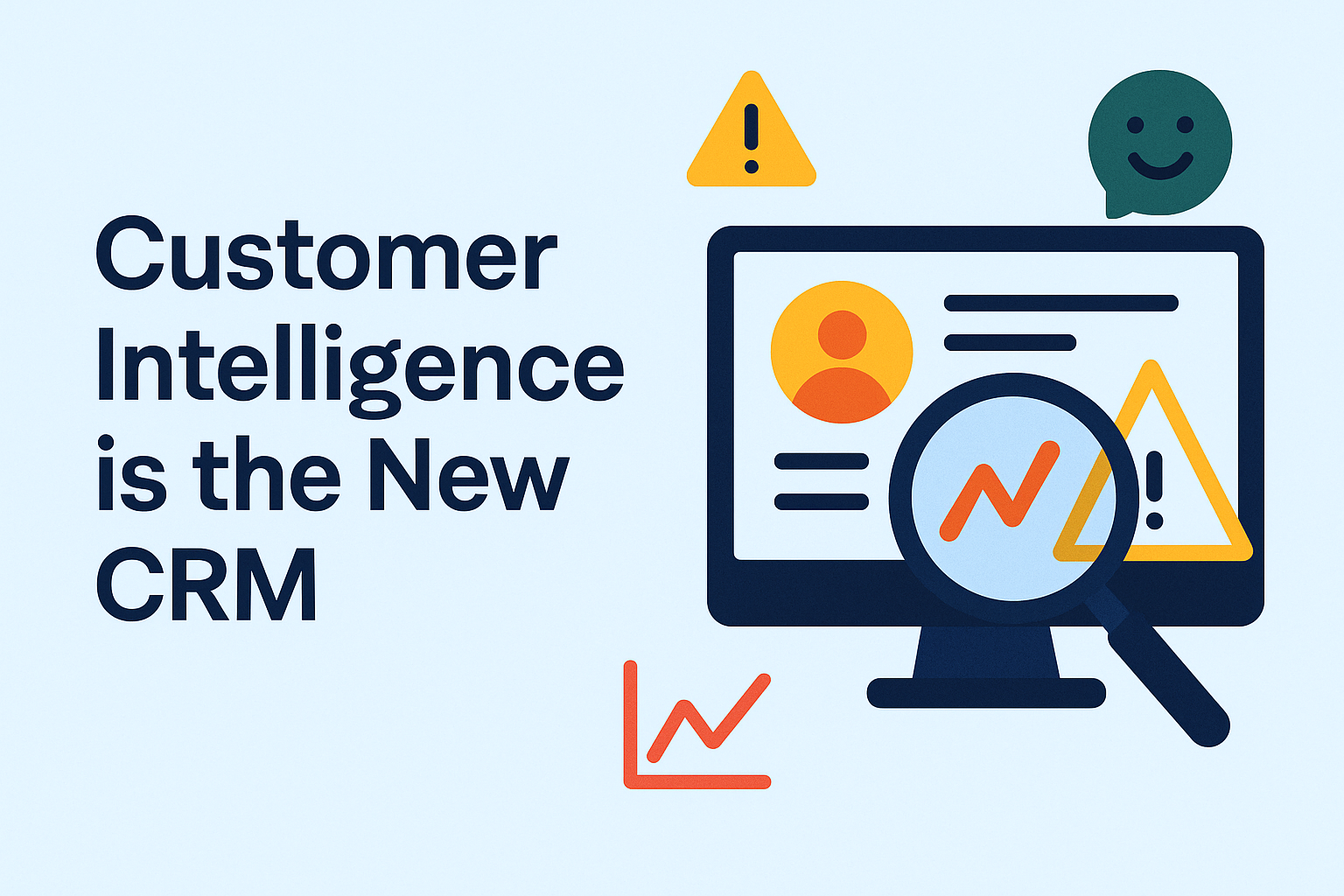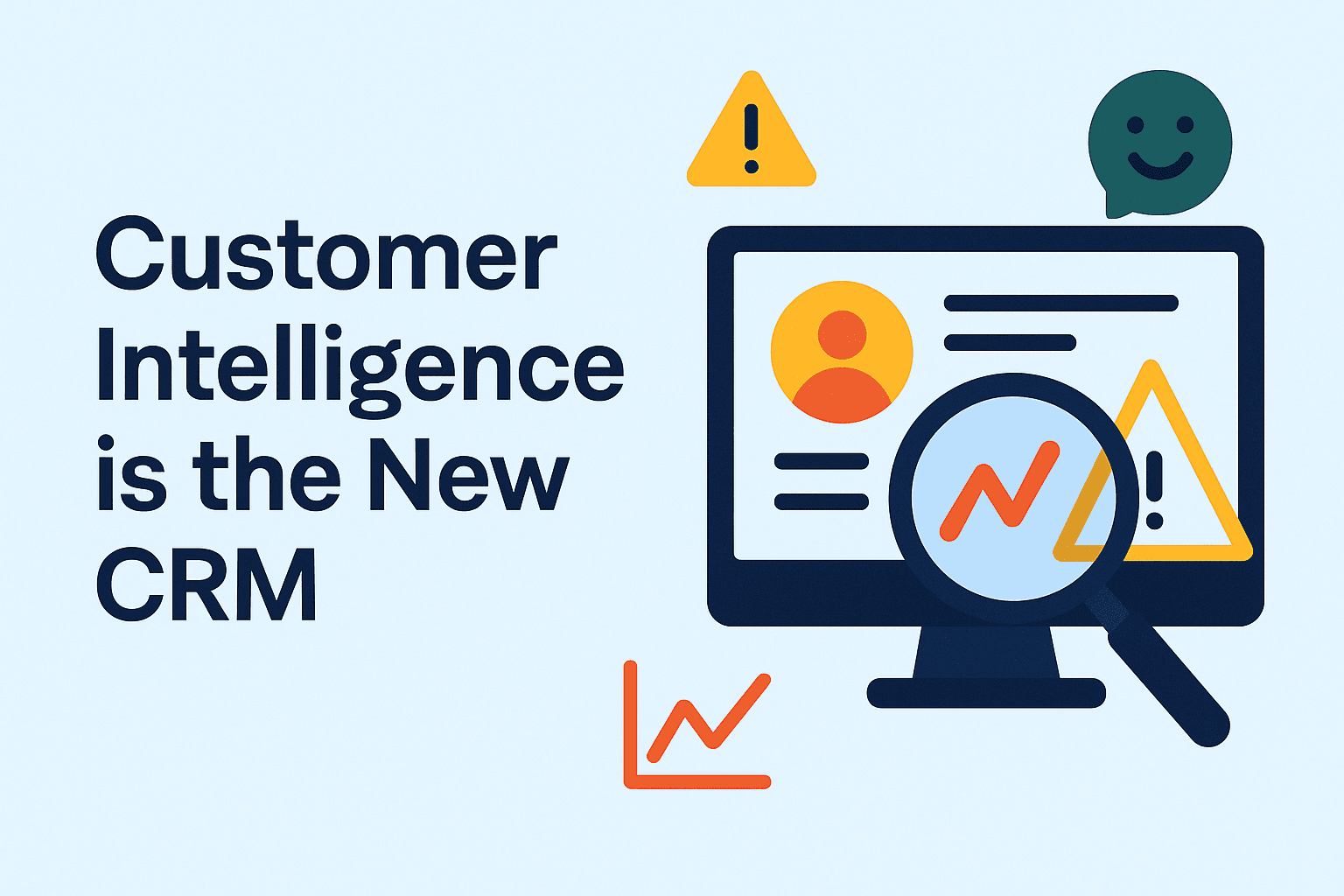Customer Intelligence is the New CRM: Why Relationships Alone Aren't Enough
High-growth SaaS businesses are waking up to a new reality: Customer intelligence—not relationships—is what fuels retention, expansion, and advocacy. The new customer journey is too rapid, too complicated, and too digital for relationship-first approaches to keep pace.
.png&w=3840&q=75)


Customer Intelligence is the New CRM: Why Relationships Alone Aren't Enough
In the Customer Success space, relationships have been the key to growth for a long time. Handshakes, recurring check-ins, and "How are things going?" calls dictated how we interacted with customers. CRM software was designed to enable this style—storing contacts, activity history, and high-level notes to keep relationship touchpoints in check.
But now, that's just not enough.
High-growth SaaS businesses are waking up to a new reality: Customer intelligence—not relationships—is what fuels retention, expansion, and advocacy. The new customer journey is too rapid, too complicated, and too digital for relationship-first approaches to keep pace.
The Limits of Relationship-First Thinking
Let's be transparent: relationships are important. But to bank on them in a vacuum is like flying without instruments. Even top-notch customer success managers get blindsided by surprise churns or lost upsell chances because they weren't privy to the entire landscape.
CRMs were built to monitor what went down, not why it went down—or possibly what could go down next.
That's where Customer Intelligence comes in.
What Is Customer Intelligence?
Customer Intelligence builds on historical CRM information by integrating:
- Product Usage Signals: Is the user using important features? Is usage growing or fading off?
- Sentiment Signals: What is the tone of support tickets, emails, or surveys? Are customer words hiding red flags?
- Risk Signals: Are there stuck issues, silent disengagements, or shifting stakeholder dynamics?
It's not about knowing who your customer is—it's about knowing how they're doing and what they need next.
From Gut Feelings to Data-Led Action
In traditional customer success, decisions were often driven by intuition or anecdotal feedback. A CSM might say, “They seem happy,” or “I think we’re okay for renewal.” But in today’s environment, guesswork is a gamble.
An intelligence-led approach changes the game. Instead of reactive firefighting, teams can proactively:
- Spot declining engagement before it becomes churn
- Trigger personalized interventions based on in-product behavior
- Prioritize accounts on both risk and growth potential, not ARR alone
- Share context-driven insights in QBRs, not relationship summaries
Why This Change Is Important Now?
Three broad forces are driving the transition from CRM to Customer Intelligence:
Digital Product Usage Is the Actual Relationship: Your product is your key point of interaction with the customer. Usage behavior informs you more than ever would be possible through meeting notes.
Scale Demands Smarter Focus: As CSMs manage more accounts, prioritization must be driven by data, not gut feel.
**Executive Stakeholders Want Outcomes, Not Updates: **They don’t care how many calls you’ve had. They care if the solution is delivering value to their business.
Intelligence-Led CS in Action
Suppose a customer has not logged in for a week, support tickets are getting progressively louder, and one of their top champions has recently departed. These indicators—captured and aggregated in real-time—can automatically notify the CSM, launch a success plan revision, and escalate internally before the customer ever complains.
Try to identify all that using just a CRM record and your most recent Zoom call.
It's Time to Evolve
Customer Success isn't nice. It's necessary. And necessity today is relevance, value, and foresight.
Customer Intelligence platforms aren't nice-to-haves—they're the new operating system for modern CS teams.
They complement human relationships with signal-driven insights. They change the story from "We didn't see it coming" to "We saw it before it became a problem."
Final Thought:
CRMs will still have a role. But if you’re still managing your customer lifecycle with only names, notes, and NPS scores, you’re missing the signals that matter most.
It’s time to go beyond relationships. It’s time for Customer Intelligence.